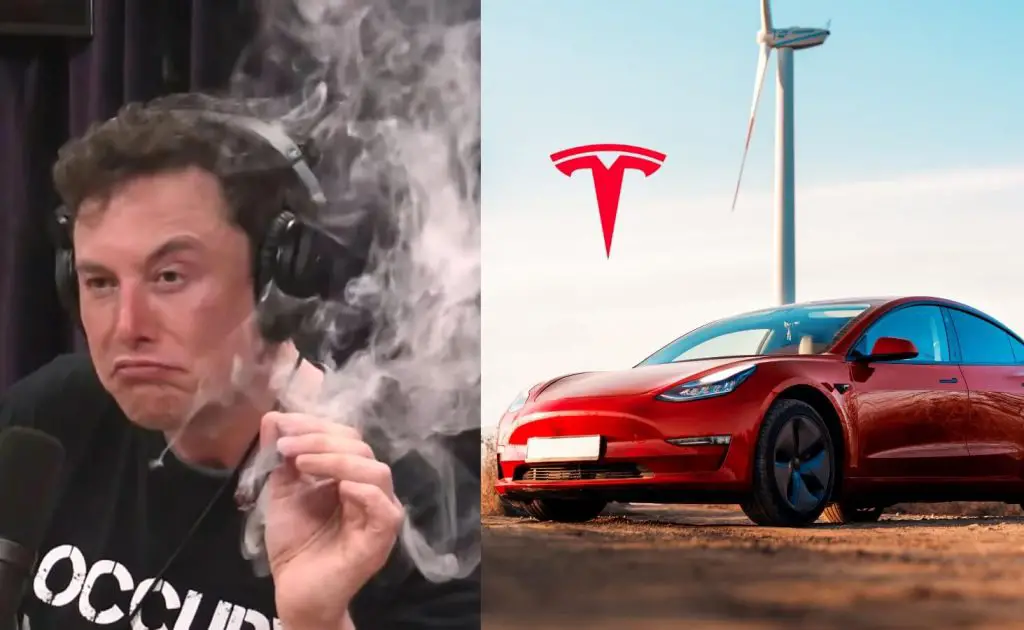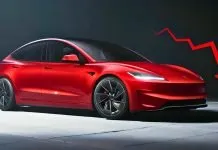The Free Beacon recently exposed the surprising reality of ESG scores, revealing that tobacco companies like Philip Morris are surpassing Tesla in their ratings. With Tesla earning a score of only 37 compared to Philip Morris’ 84, questions arise about the effectiveness and validity of ESG assessments.
This article explores the controversial practice of ESG scoring and its potential implications for corporate behavior and investment decisions.

Table of Contents
The ESG Scores Comparison
When examining the ESG scores, a significant contrast emerges between Tesla and legacy tobacco companies such as Philip Morris and British American Tobacco. Tesla, a prominent electric vehicle manufacturer known for its commitment to sustainability, received a relatively low ESG score of 37. In contrast, Philip Morris, the maker of Marlboro cigarettes, achieved an impressive score of 84. The London Stock Exchange even granted British American Tobacco a score of 94, further highlighting the discrepancy.
This stark difference in scores raises eyebrows due to the perceived societal benefits associated with Tesla’s electric vehicles, which aim to reduce carbon emissions and promote a cleaner environment. In contrast, tobacco products are widely acknowledged for their detrimental health effects and contribute to premature deaths.
Despite Tesla’s groundbreaking achievements in advancing electric vehicles and sustainable transportation, its ESG score falls far below that of legacy tobacco companies. This raises questions about the effectiveness and integrity of the ESG scoring system, as one would expect Tesla’s commitment to environmental causes to result in a higher rating.
The discrepancy between the societal impact of Tesla’s electric vehicles and the health risks associated with tobacco products calls into question the rationale behind the ESG scores. Critics argue that ESG ratings should reflect a more direct correlation between a company’s activities and their impact on the environment, society, and governance.
The stark contrast between Tesla and tobacco companies in terms of their ESG scores highlights the complexities and potential biases within the scoring system. It prompts a reevaluation of the criteria and indicators used to assess a company’s environmental, social, and governance performance, ensuring a more accurate representation of their actual impact on society and the planet.
Gaming the System
Tobacco companies have managed to strategically enhance their ESG scores by embracing corporate progressivism, a tactic that has raised eyebrows among critics. Despite manufacturing products known to contribute to slow, unhealthy deaths, these companies have found ways to maneuver the system and improve their ratings.
Tobacco Companies’ Strategic Esg Score Enhancement
One of the strategies adopted by tobacco companies is an increased focus on diversity initiatives and social justice causes. For example, Altria, a prominent tobacco giant, has placed emphasis on the diversity of its board and implemented social justice initiatives such as funding minority businesses and supporting transgender women in sports. By showcasing their commitment to these progressive causes, tobacco companies have effectively garnered higher ESG scores.
In contrast, Tesla, primarily comprised of white men according to the report, has been resistant to aligning itself with these trends. The company has not actively embraced the diversity and social justice initiatives that have become prominent in corporate circles. This resistance to conforming to the prevailing narratives and agendas has potentially impacted Tesla’s ESG score.
Critics argue that the emphasis on diversity and social justice issues in the ESG scoring process may not always have a direct rational connection to a company’s core business operations and environmental impact. Instead, companies can score “points” by demonstrating compliance with the latest dogmas issued by the diversity, equity, and inclusion (DEI) complex, as referred to by Jonathan Berry, who sued NASDAQ over its diversity requirements for corporate boards.
Tobacco Industry Embracing Corporate Progressivism
The adoption of corporate progressivism by tobacco companies to enhance their ESG scores raises questions about the validity and integrity of the scoring system. It prompts a debate about whether abstract woke goals, which may lack a direct connection to a company’s actual operations and environmental impact, should carry significant weight in evaluating ESG performance.
ESG investing has gained tremendous momentum, with trillions of dollars of capital now influenced by ESG scores. However, the case of tobacco companies outperforming Tesla in terms of ESG ratings raises concerns and highlights the need for a critical examination of the scoring criteria and assessment framework.
Criticisms of ESG Ratings
Critics argue that ESG ratings measure abstract and seemingly unrelated factors, which may not directly link to a company’s core business practices or environmental impact. Companies, instead of focusing solely on tangible indicators of sustainability and corporate responsibility, often score points by actively demonstrating compliance with the latest social and ideological trends.
Jonathan Berry’s Lawsuit Against NASDAQ on Diversity Requirements
Critics argue that ESG ratings sometimes prioritize abstract woke goals over evaluating companies’ actual business operations and their tangible impact on the environment. Jonathan Berry, who previously sued NASDAQ over its diversity requirements for corporate boards, highlights this concern. According to Berry, ESG company ratings often measure abstract woke goals that lack a rational connection to companies’ actual businesses.
The scoring system’s emphasis on compliance with the latest dogmas issued by the diversity, equity, and inclusion (DEI) complex has come under scrutiny. This perspective suggests that companies are incentivized to align with prevailing narratives and ideologies, potentially diverting attention from their core business practices and environmental impact.
The case of tobacco companies outperforming Tesla in terms of ESG ratings despite their contrasting societal contributions further exemplifies the criticisms of the system. While Tesla has been instrumental in driving the adoption of electric vehicles and promoting sustainability, its relatively low ESG score indicates a potential misalignment between the scoring criteria and the true impact of a company’s activities.
The growing influence of ESG ratings, where trillions of dollars of capital are now guided by these scores, raises concerns about their accuracy and the extent to which they reflect a company’s actual commitment to sustainability and corporate responsibility. It prompts a broader discussion about the need for a more comprehensive and objective evaluation framework that focuses on the core practices and measurable impacts of companies rather than solely relying on subjective and abstract metrics.
Implications and Conclusion
The financial impact of ESG scores on investment decisions cannot be underestimated. Trillions of dollars of capital are now guided by these scores, making them a significant factor in determining where funds are allocated. This influence has not gone unnoticed, and it has raised concerns and frustrations among industry leaders, including Elon Musk.
Elon Musk’s Frustration With The ESG System
Musk has expressed his frustration with the ESG system, highlighting its potential susceptibility to socially conscious activist investors. He raises the concern that a low ESG score could invite such investors to seek board seats or even attempt to remove a CEO, using the score as an indication of a company’s backwardness or lack of progressiveness.
Why ESG is the devil … https://t.co/uGrH0eBoMs
— Elon Musk (@elonmusk) June 14, 2023
Standard and Poor’s (S&P), as the recognized key data source for corporations worldwide, holds substantial influence in the ESG arena. Their adherence to United Nations guidelines in developing their grading rubric further solidifies their role as a powerful evaluator of companies’ environmental, social, and governance performance. This alignment with international guidelines raises questions about the extent to which ESG scoring is driven by a particular ideological agenda rather than objective evaluation.
Potential Consequences of ESG Scoring
ESG scoring has shifted corporate priorities and evaluation criteria, raising concerns about its consequences. It focuses on compliance with abstract goals, diverting attention from sustainability and responsibility.
Influential institutions like S&P aligning with progressive agendas set a precedent beyond economic control. It imposes thought control, even for a small fraction of the population.
To shape investment decisions and behavior, ESG criteria need critical examination. They should reflect comprehensive evaluation, considering tangible impacts and core practices objectively. An objective framework ensures sustainability, fairness, and meaningful impact in ESG ratings’ purpose.


















